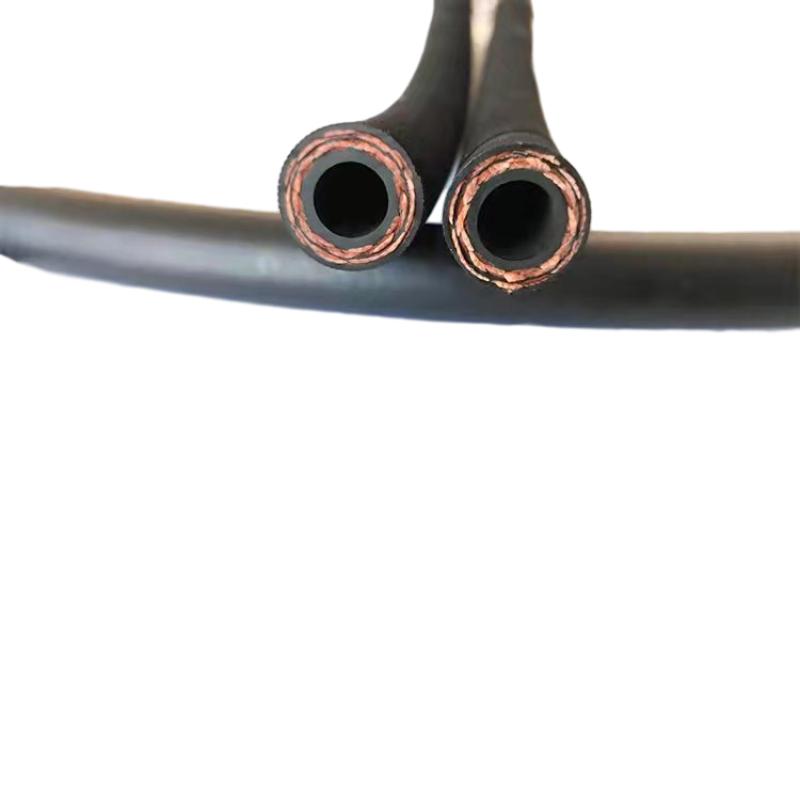High-Performance Rubber Brake Hoses for Enhanced Vehicle Safety and Durability in Demanding Conditions
Jul . 29, 2024 18:47 Back to list
High-Performance Rubber Brake Hoses for Enhanced Vehicle Safety and Durability in Demanding Conditions
Understanding Rubber Brake Hoses Importance and Maintenance
Rubber brake hoses are an integral component of a vehicle's braking system, playing a critical role in ensuring safety and performance. These hoses act as conduits, transferring brake fluid from the master cylinder to the brake calipers and wheel cylinders, which ultimately helps to slow down or stop the vehicle when needed. Given their significance, it is crucial to understand the features, benefits, and maintenance of rubber brake hoses.
Features of Rubber Brake Hoses
Rubber brake hoses are designed to withstand the high pressures generated during braking. They are typically made from high-quality rubber materials that are reinforced with multiple layers to enhance durability and resistance to wear and tear. This construction allows rubber hoses to sustain pressures of up to 3000 psi, making them reliable for even the most demanding driving conditions.
In addition to pressure resistance, rubber brake hoses are also designed to handle extreme temperatures. During braking, the friction generated can cause an increase in temperature, which could lead to brake fluid boiling if the hoses are not adequately insulated. High-quality rubber materials are used to ensure that these hoses maintain their integrity, even under intense heat.
Advantages of Using Rubber Brake Hoses
One of the primary advantages of rubber brake hoses is their flexibility. Unlike their metal counterparts, rubber hoses can easily absorb vibrations and bending without compromising their structural integrity. This flexibility allows for easier installation and accommodation of the various movements that occur within a vehicle's suspension system.
rubber brake hose

Moreover, rubber hoses have excellent resistance to corrosion and environmental factors. They are designed to withstand exposure to moisture, road salts, oils, and other contaminants that can significantly deteriorate the performance of brake systems. This resistance extends the lifespan of the hoses, making them a cost-effective choice for vehicle owners.
Maintenance and Care
Regular maintenance of rubber brake hoses is essential for maintaining the overall performance of the braking system. It is crucial to perform periodic inspections for any signs of wear, such as cracking, bulging, or fraying. Any visible damage warrants immediate replacement, as compromised hoses can lead to brake failure, posing a serious safety hazard.
Another vital aspect of maintenance is checking the brake fluid. Over time, brake fluid can absorb moisture, which can lead to corrosion within the brake lines and reduced braking efficiency. It's advisable to replace the brake fluid according to the manufacturer’s recommendations and flush the system periodically to eliminate any contaminants.
Additionally, ensure that the fittings and connections are secure. Loose connections can lead to leaks, which not only reduce braking performance but also pose a significant safety risk. Tightening connections should be part of routine checks, especially after any vehicular work that involves the brake system.
Conclusion
Rubber brake hoses are essential for the safe operation of a vehicle, providing reliable performance under varying conditions. Understanding their features, recognizing their advantages, and adhering to a consistent maintenance schedule can significantly enhance their longevity and effectiveness. Vehicle owners must always be vigilant, as the consequences of neglecting brake hose maintenance can be dire. By prioritizing the condition of rubber brake hoses, drivers can ensure a safer and smoother driving experience.
